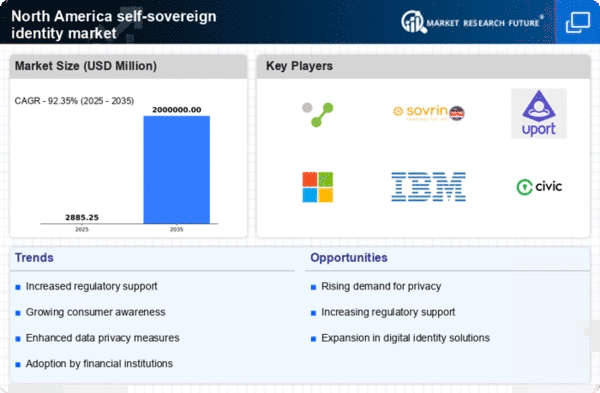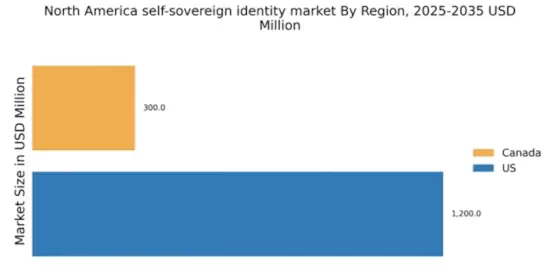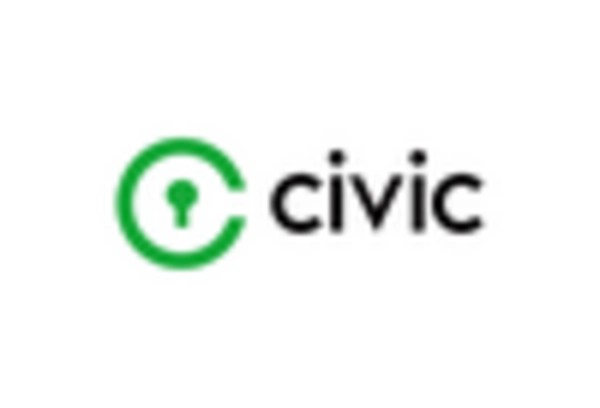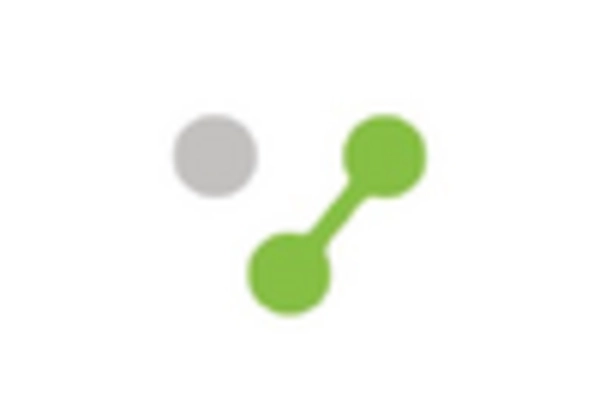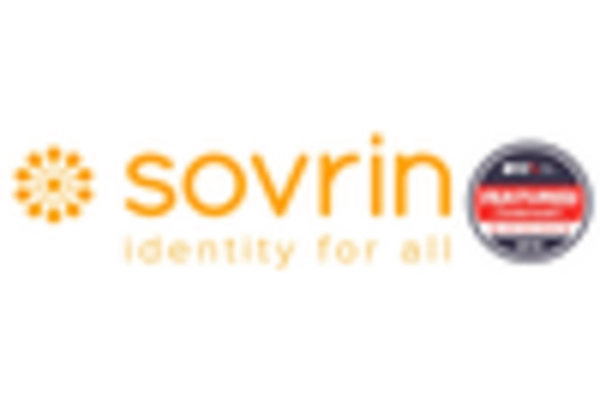Rising Demand for Data Privacy
The self sovereign-identity market is experiencing a notable surge in demand for enhanced data privacy solutions. As individuals become increasingly aware of their digital footprints, there is a growing expectation for systems that allow them to control their personal information. In North America, a survey indicated that approximately 70% of consumers prioritize privacy when engaging with digital services. This trend is driving organizations to adopt self sovereign-identity solutions that empower users to manage their identities securely. Consequently, businesses are investing in technologies that facilitate decentralized identity management, which is projected to reach a market value of $3 billion by 2026. This rising demand for data privacy is a critical driver for the self sovereign-identity market, as it aligns with consumer expectations and regulatory requirements.
Integration of Blockchain Technology
The integration of blockchain technology is significantly influencing the self sovereign-identity market. Blockchain offers a decentralized framework that enhances security and transparency in identity verification processes. In North America, the adoption of blockchain solutions has been accelerating, with an estimated market growth rate of 67% over the next five years. This technology enables individuals to maintain control over their personal data while ensuring that transactions are immutable and verifiable. As organizations seek to streamline their identity management systems, the self sovereign-identity market is likely to benefit from the increasing implementation of blockchain-based solutions. This trend not only enhances user trust but also reduces the risk of identity theft, making it a pivotal driver in the evolving landscape of digital identity.
Growing Focus on Compliance and Standards
The self sovereign-identity market is increasingly shaped by a growing focus on compliance and standards. Regulatory bodies in North America are establishing frameworks that mandate stricter identity verification processes, particularly in sectors such as finance and healthcare. This regulatory environment is compelling organizations to adopt self sovereign-identity solutions that not only meet compliance requirements but also enhance user trust. As a result, the market is projected to grow at a compound annual growth rate (CAGR) of 25% over the next five years. The emphasis on compliance is driving innovation within the self sovereign-identity market, as companies strive to develop solutions that align with emerging regulations while providing secure and user-friendly identity management options.
Increased Investment in Identity Solutions
Investment in identity solutions is on the rise, significantly impacting the self sovereign-identity market. Venture capital funding for identity management startups in North America has surged, with investments reaching approximately $1.5 billion in 2025 alone. This influx of capital is enabling the development of advanced self sovereign-identity technologies that cater to the evolving needs of consumers and businesses alike. As organizations seek to enhance their security protocols and comply with stringent regulations, the demand for innovative identity solutions is expected to grow. This trend indicates a robust market potential, as companies leverage new technologies to create more efficient and secure identity verification processes. The increased investment landscape is thus a vital driver for the self sovereign-identity market.
Shift Towards Decentralized Identity Solutions
The self sovereign-identity market is witnessing a significant shift towards decentralized identity solutions. This transition is driven by the need for more secure and user-centric identity management systems. In North America, businesses are increasingly recognizing the limitations of traditional centralized identity systems, which often expose users to data breaches and unauthorized access. A report suggests that by 2025, over 50% of organizations will adopt decentralized identity frameworks. This shift is fostering innovation within the self sovereign-identity market, as companies develop solutions that prioritize user autonomy and data security. The potential for reduced operational costs and enhanced user experience further propels this trend, making it a crucial driver for the market.


